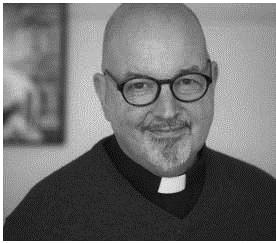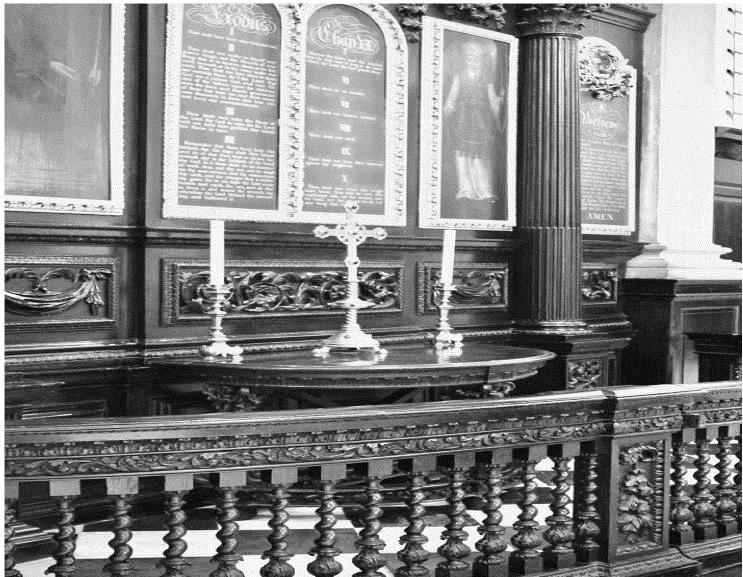|
From the Vicarage October 2023
 Rev Tracy Williams Rev Tracy Williams
I’ve just returned from a summer break during which I enjoyed visiting several churches. I noticed something that made me think. Shortly after my return a colleague rang to ask a question about the Summary of the Law, as it is known, in connection with a Sunday service
In 1560 and 1561, Queen Elizabeth I ordered that boards with the text of the Ten Commandments painted on them should be put up on the eastern wall of every church in England. This was reaffirmed by James I and was made Canon law, or added to the rules of the Church of England, in 1604. It was usual to add boards with the Lord’s Prayer and the Creed painted on them too, often these were painted directly on the wall. This is why in many old churches these texts can still be seen, even if on occasion they have been moved away from the altar; it is also why it is traditional to face the altar when saying the creed in a church service, even though, as here in our churches in Great Yarmouth, there is no board to read! This is most obvious at evensong, when the whole choir and congregation turn eastwards to recite the creed, despite the reason why being largely long forgotten

Queen Elizabeth referred to the commandments as ‘God's Precepts’, or, how we should order our lives in accordance with God’s will. She would quite rightly have believed them a good place to start for the formation of a civilized, ordered and happy society
What do the commandments say? Here’s my rough guide. There is only one God and no other; do not worship anything else, such as rock stars and fast cars; don’t blaspheme (so don’t keep saying OMG); set aside a Sabbath day, keep it special and take a break; look after your parents; don’t kill anybody; don’t commit adultery; don’t steal things; don’t tell lies about people; and don’t look sideways at other people’s stuff and wish you could have it too
Until quite recently, the commandments were recited at the beginning of every service of Holy Communion in the Church of England. Since a prayer book revision in 1928, it has been common to recite the ‘Summary of the Law’ as said by Jesus at Matthew 22 (and Mark 12, Luke 20). This is in itself derived from Deuteronomy 6:4-5 and Leviticus 19:18. The recitation of the Law was seen to be a vital form of self-preparation
If this all sounds a bit pious – it isn’t. Perhaps surprisingly, recalling the commandments was also intended to remind us that we can’t be expected to keep them all the time. The prayer book communion service goes on to emphasize that it is the work of the cross by grace through faith (Ephesians 2:8-9) that truly keeps order in our lives
Fr Tracy
photos courtesy of Great Yarmouth Parish
also published in Great Yarmouth Parish Life
The views carried here are those of the author, not of Network Yarmouth, and are intended to stimulate constructive and good-natured debate between website users
Click here to read our forum and comment posting guidelines
|
|
|
|